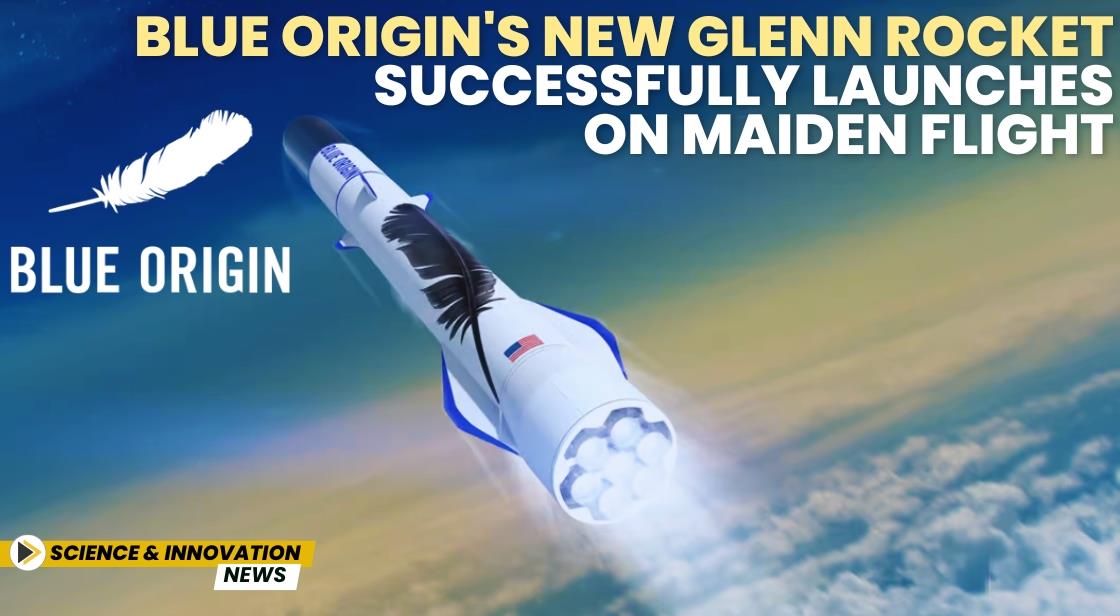Blue Origin's New Glenn Rocket Successfully Launches on Maiden Flight

News Synopsis
Blue Origin has reached a significant milestone in the space race with the successful launch of its New Glenn rocket on January 16, 2025. The launch took place from Cape Canaveral Space Force Station in Florida and marks the first-ever mission of the New Glenn rocket. This launch follows several delays, and its successful outcome has solidified Blue Origin’s place in the competitive space industry.
New Glenn Rocket: A New Contender in the Space Industry
Standing at an impressive 320 feet tall, the New Glenn rocket is designed to rival SpaceX’s Falcon 9 rocket. It features cutting-edge technology with a focus on reusability, an important factor in reducing launch costs and making space exploration more accessible. The first mission of the New Glenn rocket, designated NG-1, successfully placed the Blue Ring Pathfinder payload into orbit, marking a key achievement for the company.
Aiming for Reusability and Satellite Deployment
One of the core features of the New Glenn rocket is its ability to reuse its components, an area where Blue Origin is making significant strides. The rocket’s first stage is powered by seven BE-4 engines, which together generate 3.8 million pounds of thrust. This powerful setup allowed Blue Origin to achieve its primary mission objective: to launch the rocket and place its payload in orbit. While the rocket did not land on the floating pad in the Atlantic, the mission demonstrated the feasibility of the company’s reusability plans.
Blue Origin’s mission is a step toward reducing the cost of space exploration, as reusable rockets are expected to lower launch expenses. The successful launch not only proves Blue Origin’s capabilities in satellite deployment but also sets the stage for future missions that could include the Moon and Mars. The rocket’s reusability is crucial to shaping future missions and establishing Blue Origin as a major player in commercial space activities.
A Strong Competition for SpaceX
The successful flight of the New Glenn rocket positions Blue Origin as a formidable competitor to SpaceX, which has long dominated the commercial space industry with its Falcon 9 rocket. While SpaceX has already established a strong presence in the space sector, Blue Origin’s growing emphasis on reusability and innovation places it in direct competition. Blue Origin’s emphasis on reusable technology could revolutionize the space industry, making future space missions more cost-effective and sustainable.
The Future of Blue Origin and Space Exploration
With the successful launch of the New Glenn rocket, Blue Origin is well on its way to fulfilling its vision of becoming a leader in space exploration. The company’s next steps will likely focus on refining its reusability technology and expanding its capabilities to serve the growing satellite deployment market. As the space sector continues to evolve, Blue Origin’s efforts to reduce launch costs and increase the efficiency of space missions are expected to play a pivotal role in the next era of space exploration.
While the first stage of the New Glenn rocket did not land as intended, the mission was a crucial step in Blue Origin’s efforts to create a more sustainable space industry. Looking forward, Blue Origin’s future plans may include ambitious projects to explore the Moon and Mars, with reusability at the core of its technological advancements.
You May Like









